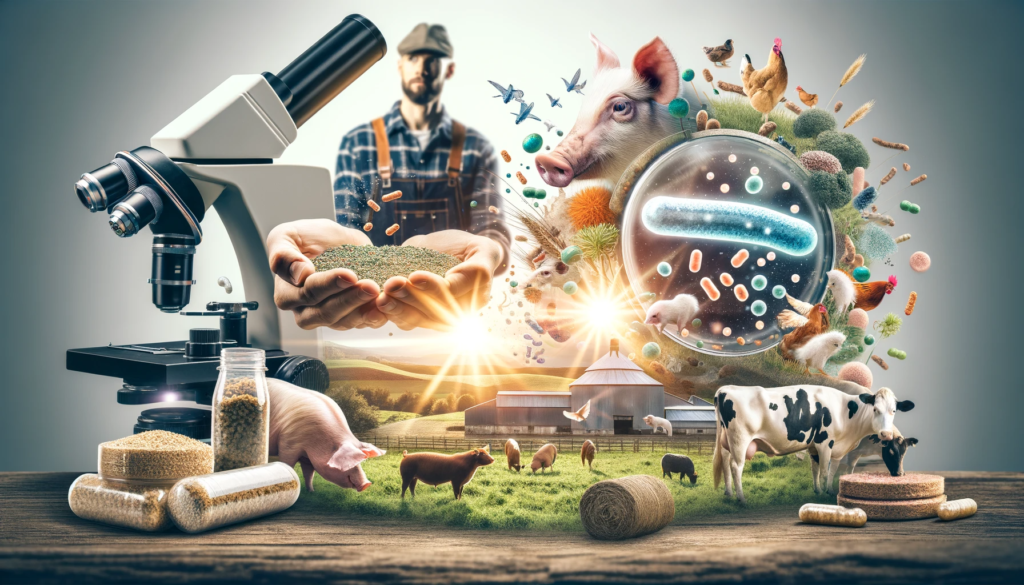
Consumers today are more conscious than ever about where their food comes from and how it is produced. This rising demand for ethically sourced and sustainability-driven animal products has catalyzed innovation in the animal feed industry. One area garnering particular interest is the use of probiotics as a natural solution for boosting health, productivity, and overall animal welfare.
Probiotics offer a promising complement and alternative to conventionally used antibiotics and chemical growth promoters. As research continues to reveal the diverse benefits of probiotics, these live microorganisms are emerging as a core component of responsible and proactive animal nutrition strategies worldwide.
Probiotics are live microorganisms that confer beneficial health effects when administered in adequate quantities. They help populate the gut with favorable bacteria that support optimal digestion and nutrient absorption.
The most commonly used probiotic strains in animal feed belong to the Lactobacillus, Bacillus, Bifidobacterium, Enterococcus, and Saccharomyces families. Each strain has unique functional properties and probiotic effects.
Probiotics act through several key mechanisms to positively influence animal health and performance:
Probiotics can be administered to animals in various forms:
The use of probiotics as feed supplements and additives is gaining significant traction across poultry, swine, ruminant, and aquaculture production. Research has demonstrated positive impacts on health, growth rates, feed utilization, and product quality.
Multiple studies reveal probiotics can improve weight gain, growth rates, and feed conversion ratios in livestock animals by:
In a meta-analysis of broiler chickens, probiotic supplementation increased body weight gain by 5.03% and improved feed conversion ratio by 2.41%.
Probiotics promote the digestibility and absorption of proteins, carbohydrates, fats, minerals, and vitamins by:
One study found that piglets fed a Lactobacillus probiotic had higher apparent total tract digestibility of dry matter, nitrogen, energy, and calcium versus control pigs.
By supporting healthy intestinal barrier function and beneficial gut microflora, probiotics strengthen innate and humoral immunity in livestock species. Documented effects include:
Multiple reviews conclude that probiotics can reduce the risk and severity of enteric infections in poultry flocks when administered prophylactically.
Probiotics offer a promising natural alternative to controversial antibiotic growth promoters used in animal feed. For example:
With rising concerns over antibiotic resistance, probiotics present an effective tool for maintaining animal health and performance without antibiotics
.
| Livestock Species | Observed Probiotic Benefits |
|---|---|
| Poultry | Increased feed intake, weight gain, FCR; improved gut health and morphology; reduced pathogens |
| Swine | Improved growth performance, nutrient digestibility; modulated immunity; increased lean muscle mass |
| Ruminants | Enhanced rumen fermentation, milk yield and composition; reduced methane emissions |
| Aquaculture | Stimulated growth factors and digestive enzymes; inhibited pathogens; strengthened immune response |
Previously categorized as direct-fed microorganisms, probiotic products are increasingly regulated as feed additives worldwide. This aims to ensure quality, safety, and efficacy through oversight by governing bodies.
Some of the main agencies providing guidance on probiotic approvals and labeling include:
While specific regulations vary between countries, general requirements for probiotic approvals relate to:
Emerging opportunities in the regulatory sphere include developing probiotic quality seals and streamlining the approval process for low-risk probiotic strains. Ongoing challenges include keeping up with rapidly expanding research, variability in regional regulations, and monitoring off-label probiotic usage.
International collaboration among regulatory agencies can help harmonize quality standards and accelerate access to thoroughly vetted, beneficial probiotic products for the animal feed industry.
As the probiotic field continues to grow, new Frontiers are emerging across R&D, product development, and real-world applications.
Exciting areas of investigation include:
Vanguard advancements in probiotic supplements include:
To maximize the value of probiotics, it is essential to:
As consumer demand and research reveal the far-reaching benefits of probiotics, these functional feed ingredients are becoming indispensable tools for healthy, sustainable animal production.
Proactive adoption of science-backed probiotic supplements allows the industry to reduce reliance on antibiotics, enhance animal welfare, and produce nutritious animal-sourced foods.
Continued innovation, education, and collective action across the research, regulatory, and producer communities will unlock the full potential of probiotics to drive the future of animal nutrition and well-being.